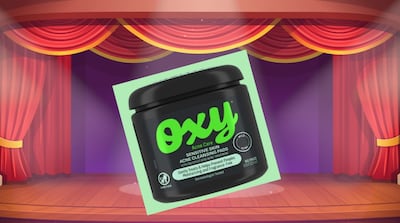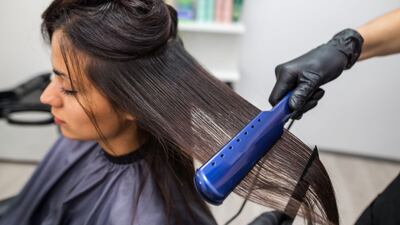Cosmetic Ingredients
Mentholatum says two line extensions made with 2% salicylic acid and its "Oxy for Every Kind of Ne" campaign reinforce the brand’s “commitment to tackling every type of acne—from face-ne and chin-ne to body-ne.”
The Fragrance Creators Association president and CEO discusses the group’s vision for fragrance industry stewardship and opportunities provided by AI, biotechnology and wellness trends in an exclusive Q&A with HBW Insight.
Marking a first for the iconic brand, Eucerin Face is rolling out in Target doors now, Beiersdorf leaders noted in a 7 August half-year earnings presentation. The firm’s Consumer business segment recorded nominal sales growth of 5.4% to €4.3bn in the first half of 2024, led by Nivea.
Warning letters to SuXiang Medical Instrument in China and Yahon Enterprise in Vietnam among recent warnings FDAS sent to OTC drug and supplement manufacturers, including a Florida firm, White Label Leaf, warned about selling gummies containing delta-8 THC, and other OTC skin care product firms.
In addition to sustainability, Myers noted DEI and advancing alternatives to animal testing among key priorities for the group. “We have member companies that really lead the way on many of those. We want to be able to amplify their good work and their messaging, because they are good corporate citizens” and “it’s what consumers are demanding anyway,” he said in an interview.
Legislator education is key to checking state bills that overreach, says Ross, executive VP of government affairs at the Personal Care Products Council, discussing the rising tide of US state bills aimed at restricting ingredient use.
Numerous cosmetic ingredients that preserve cosmetics by releasing formaldehyde could be prohibited in products sold in Washington state in coming years, but stakeholders have a chance to weigh in now and shape the rulemaking. Shari Franjevic, implementation head for the Toxic-Free Cosmetics Act within the state's Department of Ecology, discusses.
Anna Benevente, director of the Product, Labeling and Ingredient Review Department at consultancy Registrar Corp, offers perspective on the US FDA’s overdue rulemaking proposal for fragrance allergen labeling on cosmetic products under MoCRA, as well as adverse event reporting compliance.
The National Advertising Division provides guidance to “minimalist” beauty and personal-care marketers with its review of “simple” claims on Native deodorant, body wash and other personal-care products.
Attorneys for some plaintiffs alleging harm from talc products J&J marketed ask a court to order the firm, along with a subsidiary holding company it created in 2021 to manage its talc liabilities and immediately placed in bankruptcy, to provide emails and other communications among in-house counsel and compel their testimony.
Supreme Court ruling on Purdue bankruptcy should “derail any attempt by J&J to return the talc litigation to the bankruptcy courts,” says class action plaintiff’s attorney. A federal court, Justice Gorsuch states, relieved Purdue owners of liability “without securing the consent of those affected or placing anything approaching their total assets on the table.”
The European Commission fines International Flavors & Fragrances Inc. and its French division €15.9m after a senior employee deleted WhatsApp messages with a competitor during an inspection, part of an ongoing antitrust investigation into four major flavors and fragrance manufacturers.
Proposition 65 titanium dioxide lawsuits have been halted by a ruling in California in a First Amendment case, which could bode favorably for other scientific challenges to mandated warning labels.
Cosmetic Ingredient Review’s independent expert panel needs more data to assess the safety of prostaglandin analogs, but ultimately may pass review back to the US Food and Drug Administration due to concerns that the substances impact the structure and function of the body and thus are unapproved drugs with potentially serious side effects.
Amid organizational and leadership changes and numerous competing high priorities, the FDA’s planned Notice of Proposed Rulemaking to ban formaldehyde-containing hair-straightening products has been pushed from April to July 2024. An agency spokesperson provided an update on related activities, which are being closely watched by NGOs, state-level policymakers, and industry stakeholders.
Elixir Cosmetics has reached a $2.3m settlement with US consumers in California state court over alleged violations related to isopropyl cloprostenate use in Babe Lash and Babe Brow offerings. On 5 May, plaintiffs making similar allegations filed suit against the company in New York federal court.
The negotiated revision of the Classification, Labeling and Packaging (CLP) regulation met with industry approval in April, even if it just kicks the can down the road with regard to classification of more-than-one-constituent substances (MOCS). DSM-Firmenich announces partnerships with plants in mind, Symrise’s new CEO maintains growth targets, and more news in brief.
With NIVEA driving growth in its Consumer division, German firm Beiersdorf AG has signed a multi-year deal with Rubedo Life Sciences to develop anti-aging solutions and new products for the global market. More beauty business news, including L’Oreal, Inter Parfums, Galderma, and LVMH/Sephora sales updates.
The Personal Care Products Council seeks to stem the rising tide of titanium dioxide Proposition 65 lawsuits, requesting that a California court prohibit the state’s Attorney General and private enforcers from filing and/or prosecuting new suits against cosmetics companies failing to warn about potential TiO2 exposure.
Personal care and cosmetic product trademark filings compiled from the Official Gazette of the US Patent and Trademark Office, Class 3.
ADVERTISEMENT



















